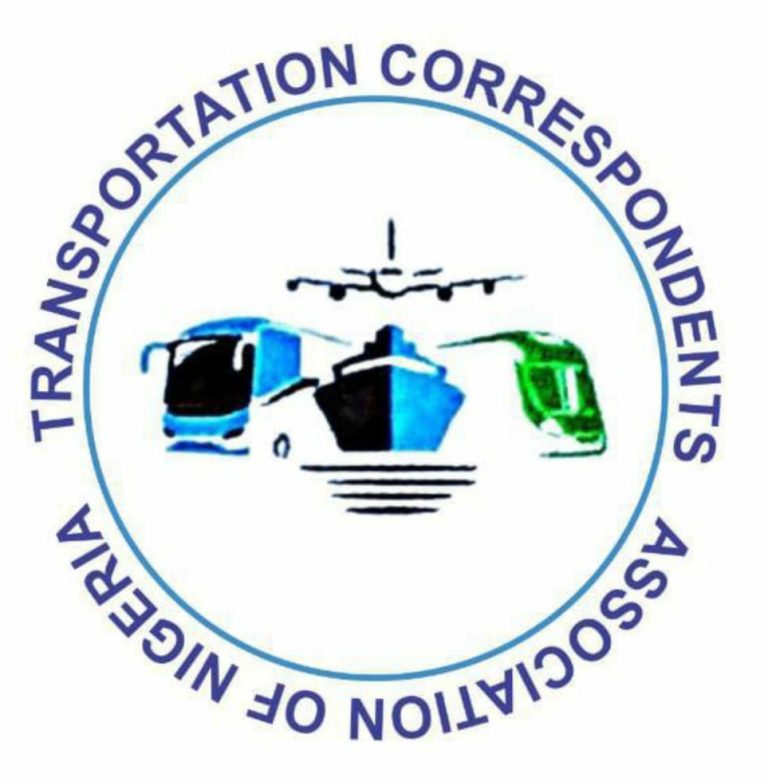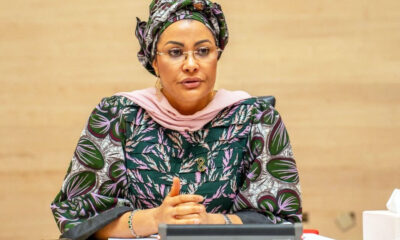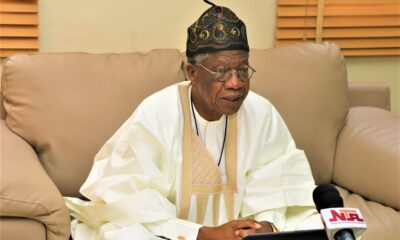Business
How CBN countered First Bank coup

Many must have been taken by surprise by the changes that swept through First Bank of Nigeria Limited and FBN Holdings Plc Wednesday and Thursday.
The removal and reinstatement of FirstBank CEO Sola Adeduntan and subsequent sacking of the entire board and management of the two institutionsspeak volumes of the Central Bank of Nigeria (CBN’s) regulatory powers as contained in the Bank and Other Financial institutions Act 2020.
Adeduntan has since resumed at his desk in line with the directives of the apex bank and looks set to reinvent itself.
Nobody saw two leadership changes in First Bank of Nigeria Limited and FBN Holdings Plc within 48 hours coming.
But when they finally occurred, they set precedents that regulatory powers could be activated where corporate governance practices are breached.
The first change in leadership saw the six-year tenure of FirstBank Managing Director/CEO Sola Adeduntan brought to sudden end, eight months to its expiration.
The Board of First Bank of Nigeria Limited at its meeting Wednesday had approved the appointment of Gbenga Shobo, Deputy Managing Director, as the Managing Director/CEO designate of the bank sending Adeduntan to early retirement.
Also appointed were Abdullahi Ibrahim as Deputy Managing Director, while Ini Ebong, Segun Alebiosu, Seyi Oyefeso and Mrs. Bashirat Odunewu, were also appointed as Executive Directors.
The following day, the Central Bank of Nigeria (CBN) Governor, Godwin Emefiele, reversed the appointments and sacked the entire Board of FirstBank and FBN Holdings Plc.
Emefiele immediately announced the appointment of new Board and Management for First Bank of Nigeria Limited and FBN Holdings Plc.
The total management and board reshuffle saw Adeduntan returned as the Managing Director/CEO of First Bank of Nigeria. Emefiele said he was satisfied working with Adeduntan on the bank’s stabilisation plan since 2016. Shobo was also returned to his former position as Deputy Managing Director/CEO for the bank.
Emefiele said the Management of the CBN acted in line with its powers under Bank and Other Financial Institutions Act (BOFIA) 2020.
In the new appointments, Remi Babalola was appointed the new Chairman, FBN Holdings. He replaced Oba Otudeko, the former Chairman.
The new directors are Dr. Fatade Abiodun Oluwole, Kofo Dosekun, Remi Lasaki, Dr Alimi Abdulrasaq, Ahmed Modibbo, Khalifa Imam, Sir Peter Aliogo and UK Eke – Managing Director.
The CBN also named Tunde Hassan-Odukale as Chairman, First Bank of Nigeria Limited. He replaced Mrs. Ibukun Awosika. The new directors of the bank are Tokunbo Martins, Uche Nwokedi, Adekunle Sonola, Isioma Ogodazi, Ebenezer Olufowose, Ishaya Elijah B. Dodo. Remi Oni was appointed Executive Director and Abdullahi Ibrahim also appointed as Executive Director.
The apex bank has also reassured the depositors, creditors and other stakeholders of the bank of its commitment to ensure the stability of the financial system.
“There is therefore no cause for panic amongst the banking public, given that the actions being taken are meant to strengthen the bank and position it as a banking industry giant,” the apex bank said.
According to Emefiele, the board is vested with the authority to make changes in the management team subject to CBN approval.
However, the CBN considers itself a key stakeholder in management changes involving FBN due to the forbearances and close monitoring by the bank over the last five years aimed at stemming the slide in the going concern status of the bank.
“It was therefore surprising for the CBN to learn through media reports that the board of directors of FBN, a systemically important bank under regulatory forbearance regime had effected sweeping changes in executive management without engagement and/or prior notice to the regulatory authorities,” Emefiele said.
He said the action by the board of FBN sends a negative signal to the market on the stability of leadership on the board and management and it is in light of the foregoing that the CBN queried the board of directors on the unfortunate developments at the bank.
FBN is one of the systemically important banks in the Nigerian banking sector given its historical significance, balance sheet size, large customer base and high level of interconnectedness with other financial service providers, amongst others.
He said FBN has over 31 million customers, with deposit base of N4.2 trillion, shareholders’ funds of N618 billion and NIBSS instant payment (NIP) processing capacity of 22 per cent of the industry.
Emefiele said it is imperative to protect the minority shareholders that have no voice to air their views, also important, is the protection of the over 31 million customers of the bank who see FBN as a safe haven for their hard-earned savings.
He said FirstBank maintained healthy operations up until 2016 financial year when the CBN’s target examination revealed that the bank was in grave financial condition with its capital adequacy ratio (CAR) and non-performing loans ratio (NPL) substantially breaching acceptable prudential standards.
He attributed the problems at the bank to bad credit decisions, significant and non-performing insider loans and poor corporate governance practices. The shareholders of the bank and FBN Holding Plc also lacked the capacity to recapitalise the bank to minimum requirements. These conclusions arose from various entreaties by the CBN to them to recapitalise.
Emefiele said the CBN stepped in to stabilise the bank in its quest to maintain financial stability, especially given FBN’s systemic importance as enumerated earlier.
The CBN boss said: “The bank maintained healthy operations up until 2016 financial year when the CBN’s target examination revealed that the bank was in grave financial condition with its capital adequacy ratio (CAR) and non-performing loans ratio (NPL) substantially breaching acceptable prudential standards.
“The problems at the bank were attributed to bad credit decisions, significant and non-performing insider loans and poor corporate governance practices.
“The shareholders of the bank and FBN Holding Plc also lacked the capacity to recapitalise the bank to minimum requirements. These conclusions arose from various entreaties by the CBN to them to recapitalise.”
However the CBN, Emefiele said, stepped in to stabilise FBN with the “appointment of a new Managing Director/Chief Executive Office in January 2016.”
CBN’s interventions to save FirstBank
Other interventions highlighted by the CBN governor to save FBN from collapse, include granting it “regulatory forbearances to enable the bank work out its non-performing loans through provision for write off of at least N150 billion from its earning for four consecutive years.
“Another is the granting of concession to insider borrower to restructure their non-performing credit facilities under very stringent conditions and the renewal of the forbearances on a yearly basis between 2016 and 2020 following thorough monitoring of progress towards exiting from the forbearance measures.”
Emefiele said he was shocked to hear of the sack Adeduntan from media reports after he had made entreaties that the former FBN Holding chairman should pull the brake.
The CBN governor said an interested party leaked information to him about plans to sack Adeduntan. To stop the move, he said he called Otudeko and “spoke to him that such changes will require CBN approval.”
Emefiele said he pleaded with Otudeko, sent a shareholder to also plead with him not to go ahead with the decision but they went ahead all the same.
He described FBN as a systemically important bank in the Nigerian banking sector “given its historical significance, balance sheet size, large customer base and high level of interconnectedness with other financial service providers, among others.”
Stock movement
The shares of FBN Holdings (FBNH) Plc on Thursday dropped 6.76 per cent to N6.90 per share. There were no changes in the bank’s shares on Friday.
The FBNH began the year with a share price of N7.15 but has since lost 3.5 per cent off that price valuation, ranking it 109th on the Nigeria Stock Exchange in terms of year-to-date performance.
FBN Holdings Plc is the non-operating holding company of First Bank of Nigeria Limited, a commercial bank with operations in 10 countries.
FirstBank speaks on development
In a statement released Friday and signed by Mrs. Folake Ani-Mumuney Group Head, Marketing & Corporate Communications, the bank said: “We refer to the CBN pronouncement on the reconstitution of the Board of Directors of First Bank of Nigeria Limited. Further to the press conference held by the Governor of the Central Bank of Nigeria, Mr. Godwin Emefiele on Thursday, 29 April 2021, the Boards of FBN Holdings Plc and First Bank of Nigeria Limited were dissolved and reconstituted, pursuant to its power under Banks and Other Financial Institutions Act (BOFIA) 2020.
“Adesola Adeduntan has since resumed work as CEO in line with the directives of the CBN. We can confirm that the bank is cooperating with the CBN and other regulators while the operations of the bank are not hampered or hindered in any way and are in fact running smoothly. We further wish to reassure the public, our esteemed customers and stakeholders in the words of the Governor of the Central Bank in concluding his press conference.
“The CBN hereby reassures the depositors, creditors and other stakeholders of the bank of its commitment to ensuring the stability of the financial system. There is therefore no cause for panic amongst the banking public, given that the actions being taken are meant to strengthen the Bank and position it as a banking industry giant,” the bank stated.
Others stakeholders speak
Former President, Chartered Institute of Bankers of Nigeria (CIBN), Okechukwu Unegbu, said FirstBank is systematically important bank, but faced serious crisis emanating from poor corporate governance practices.
He said the leadership changes instituted by the bank’s former boards and management failed to realise the power of the CBN to correct any anomaly instituted by board or management.
He said had the CBN not intervened, there could have been a run on the bank, and the high esteem on which the bank is held in the minds of Nigerians meant that it could threaten financial system stability.
He said: “The CBN acted rightly by reversing the leadership change at FirstBank and also letting go of the old board that had been part of the problem of the bank through poor corporate governance practices. The action taken by the CBN will boost foreign investors’ confidence in the economy.”
In the view of President, Bank Customers Association of Nigeria (BCAN) Uju Ogubunka, the challenge facing FirstBank should have been tackled earlier by the CBN, without getting to this level.
“I expect the CBN to be more proactive going forward. The level of insider loan abuses seen in FirstBank was an indication of regulatory negligence. The perpetrators and the directors involved in the insider loan abuse that were in excess of single obligor limit should have been sanctioned before now. Supervisory roles of the regulator should be more proactive going forward,” he maintained.
Also speaking, former Executive Director, Keystone Bank Limited, Richard Obire said the CBN acted rightly in the face of critical corporate governance crisis in the bank.
Nobody saw two leadership changes in First Bank of Nigeria Limited and FBN Holdings Plc within 48 hours coming.
But when they finally occurred, they set precedents that regulatory powers could be activated where corporate governance practices are breached.
The first change in leadership saw the six-year tenure of FirstBank Managing Director/CEO Sola Adeduntan brought to sudden end, eight months to its expiration.
The Board of First Bank of Nigeria Limited at its meeting Wednesday had approved the appointment of Gbenga Shobo, Deputy Managing Director, as the Managing Director/CEO designate of the bank sending Adeduntan to early retirement.
Also appointed were Abdullahi Ibrahim as Deputy Managing Director, while Ini Ebong, Segun Alebiosu, Seyi Oyefeso and Mrs. Bashirat Odunewu, were also appointed as Executive Directors.
The following day, the Central Bank of Nigeria (CBN) Governor, Godwin Emefiele, reversed the appointments and sacked the entire Board of FirstBank and FBN Holdings Plc.
Emefiele immediately announced the appointment of new Board and Management for First Bank of Nigeria Limited and FBN Holdings Plc.
The total management and board reshuffle saw Adeduntan returned as the Managing Director/CEO of First Bank of Nigeria. Emefiele said he was satisfied working with Adeduntan on the bank’s stabilisation plan since 2016. Shobo was also returned to his former position as Deputy Managing Director/CEO for the bank.
Emefiele said the Management of the CBN acted in line with its powers under Bank and Other Financial Institutions Act (BOFIA) 2020.
In the new appointments, Remi Babalola was appointed the new Chairman, FBN Holdings. He replaced Oba Otudeko, the former Chairman.
The new directors are Dr. Fatade Abiodun Oluwole, Kofo Dosekun, Remi Lasaki, Dr Alimi Abdulrasaq, Ahmed Modibbo, Khalifa Imam, Sir Peter Aliogo and UK Eke – Managing Director.
The CBN also named Tunde Hassan-Odukale as Chairman, First Bank of Nigeria Limited. He replaced Mrs. Ibukun Awosika. The new directors of the bank are Tokunbo Martins, Uche Nwokedi, Adekunle Sonola, Isioma Ogodazi, Ebenezer Olufowose, Ishaya Elijah B. Dodo. Remi Oni was appointed Executive Director and Abdullahi Ibrahim also appointed as Executive Director.
The apex bank has also reassured the depositors, creditors and other stakeholders of the bank of its commitment to ensure the stability of the financial system.
“There is therefore no cause for panic amongst the banking public, given that the actions being taken are meant to strengthen the bank and position it as a banking industry giant,” the apex bank said.
According to Emefiele, the board is vested with the authority to make changes in the management team subject to CBN approval.
However, the CBN considers itself a key stakeholder in management changes involving FBN due to the forbearances and close monitoring by the bank over the last five years aimed at stemming the slide in the going concern status of the bank.
“It was therefore surprising for the CBN to learn through media reports that the board of directors of FBN, a systemically important bank under regulatory forbearance regime had effected sweeping changes in executive management without engagement and/or prior notice to the regulatory authorities,” Emefiele said.
He said the action by the board of FBN sends a negative signal to the market on the stability of leadership on the board and management and it is in light of the foregoing that the CBN queried the board of directors on the unfortunate developments at the bank.
FBN is one of the systemically important banks in the Nigerian banking sector given its historical significance, balance sheet size, large customer base and high level of interconnectedness with other financial service providers, amongst others.
He said FBN has over 31 million customers, with deposit base of N4.2 trillion, shareholders’ funds of N618 billion and NIBSS instant payment (NIP) processing capacity of 22 per cent of the industry.
Emefiele said it is imperative to protect the minority shareholders that have no voice to air their views, also important, is the protection of the over 31 million customers of the bank who see FBN as a safe haven for their hard-earned savings.
He said FirstBank maintained healthy operations up until 2016 financial year when the CBN’s target examination revealed that the bank was in grave financial condition with its capital adequacy ratio (CAR) and non-performing loans ratio (NPL) substantially breaching acceptable prudential standards.
He attributed the problems at the bank to bad credit decisions, significant and non-performing insider loans and poor corporate governance practices. The shareholders of the bank and FBN Holding Plc also lacked the capacity to recapitalise the bank to minimum requirements. These conclusions arose from various entreaties by the CBN to them to recapitalise.
Emefiele said the CBN stepped in to stabilise the bank in its quest to maintain financial stability, especially given FBN’s systemic importance as enumerated earlier.
The CBN boss said: “The bank maintained healthy operations up until 2016 financial year when the CBN’s target examination revealed that the bank was in grave financial condition with its capital adequacy ratio (CAR) and non-performing loans ratio (NPL) substantially breaching acceptable prudential standards.
“The problems at the bank were attributed to bad credit decisions, significant and non-performing insider loans and poor corporate governance practices.
“The shareholders of the bank and FBN Holding Plc also lacked the capacity to recapitalise the bank to minimum requirements. These conclusions arose from various entreaties by the CBN to them to recapitalise.”
However the CBN, Emefiele said, stepped in to stabilise FBN with the “appointment of a new Managing Director/Chief Executive Office in January 2016.”
CBN’s interventions to save FirstBank
Other interventions highlighted by the CBN governor to save FBN from collapse, include granting it “regulatory forbearances to enable the bank work out its non-performing loans through provision for write off of at least N150 billion from its earning for four consecutive years.
“Another is the granting of concession to insider borrower to restructure their non-performing credit facilities under very stringent conditions and the renewal of the forbearances on a yearly basis between 2016 and 2020 following thorough monitoring of progress towards exiting from the forbearance measures.”
Emefiele said he was shocked to hear of the sack Adeduntan from media reports after he had made entreaties that the former FBN Holding chairman should pull the brake.
The CBN governor said an interested party leaked information to him about plans to sack Adeduntan. To stop the move, he said he called Otudeko and “spoke to him that such changes will require CBN approval.”
Emefiele said he pleaded with Otudeko, sent a shareholder to also plead with him not to go ahead with the decision but they went ahead all the same.
He described FBN as a systemically important bank in the Nigerian banking sector “given its historical significance, balance sheet size, large customer base and high level of interconnectedness with other financial service providers, among others.”
Stock movement
The shares of FBN Holdings (FBNH) Plc on Thursday dropped 6.76 per cent to N6.90 per share. There were no changes in the bank’s shares on Friday.
The FBNH began the year with a share price of N7.15 but has since lost 3.5 per cent off that price valuation, ranking it 109th on the Nigeria Stock Exchange in terms of year-to-date performance.
FBN Holdings Plc is the non-operating holding company of First Bank of Nigeria Limited, a commercial bank with operations in 10 countries.
FirstBank speaks on development
In a statement released Friday and signed by Mrs. Folake Ani-Mumuney Group Head, Marketing & Corporate Communications, the bank said: “We refer to the CBN pronouncement on the reconstitution of the Board of Directors of First Bank of Nigeria Limited. Further to the press conference held by the Governor of the Central Bank of Nigeria, Mr. Godwin Emefiele on Thursday, 29 April 2021, the Boards of FBN Holdings Plc and First Bank of Nigeria Limited were dissolved and reconstituted, pursuant to its power under Banks and Other Financial Institutions Act (BOFIA) 2020.
“Adesola Adeduntan has since resumed work as CEO in line with the directives of the CBN. We can confirm that the bank is cooperating with the CBN and other regulators while the operations of the bank are not hampered or hindered in any way and are in fact running smoothly. We further wish to reassure the public, our esteemed customers and stakeholders in the words of the Governor of the Central Bank in concluding his press conference.
“The CBN hereby reassures the depositors, creditors and other stakeholders of the bank of its commitment to ensuring the stability of the financial system. There is therefore no cause for panic amongst the banking public, given that the actions being taken are meant to strengthen the Bank and position it as a banking industry giant,” the bank stated.
Others stakeholders speak
Former President, Chartered Institute of Bankers of Nigeria (CIBN), Okechukwu Unegbu, said FirstBank is systematically important bank, but faced serious crisis emanating from poor corporate governance practices.
He said the leadership changes instituted by the bank’s former boards and management failed to realise the power of the CBN to correct any anomaly instituted by board or management.
He said had the CBN not intervened, there could have been a run on the bank, and the high esteem on which the bank is held in the minds of Nigerians meant that it could threaten financial system stability.
He said: “The CBN acted rightly by reversing the leadership change at FirstBank and also letting go of the old board that had been part of the problem of the bank through poor corporate governance practices. The action taken by the CBN will boost foreign investors’ confidence in the economy.”
In the view of President, Bank Customers Association of Nigeria (BCAN) Uju Ogubunka, the challenge facing FirstBank should have been tackled earlier by the CBN, without getting to this level.
“I expect the CBN to be more proactive going forward. The level of insider loan abuses seen in FirstBank was an indication of regulatory negligence. The perpetrators and the directors involved in the insider loan abuse that were in excess of single obligor limit should have been sanctioned before now. Supervisory roles of the regulator should be more proactive going forward,” he maintained.
Also speaking, former Executive Director, Keystone Bank Limited, Richard Obire said the CBN acted rightly in the face of critical corporate governance crisis in the bank.
Emefiele, who spoke on the theme: “The Next Level of Corporate Governance Practice” said fit and proper persons should be appointed into the boards of banks adding that corporate governance is undoubtedly an essential pillar in financial system stability.
He said that failure of banks’ boards in carrying out their oversight functions by checking management excessive risk taking, conflict of interest, undue concentration on short term gains and excessive executive compensation fundamentally affect the ability of financial institution to meet their core mandates.
Emefiele said running an efficient and sound bank is all about strong governance adding that weak governance ensues when shareholders employ inexperienced or unenlightened people to run their banks.
“Weak governance will ensure that liquidity position in banks is eroded. We want to make sure that banks remain strong by ensuring that strong governance exists. It is also about checking your conscience to tell yourself, have you performed your role diligently that you are not only serving your own interest as shareholders but also serving the interest of larger stakeholders?
“It encompasses the protection of minority shareholders, disclosure provisions, the role and structure of the board, complexity on the definition of related parties, compensation structures and much more. Therefore weak corporate governance can undermine financial stability by heightening vulnerability of financial institutions to external shocks,” he said.
For the CBN boss, institutions with sound corporate governance and effective board oversights are more resilient to shocks and operate more profitably.
Hence, now is the time for all banks to follow the path of honour by embracing sound corporate governance practices to achieve sustainable growth and avoid regulatory sanctions.
Business
NNPC Raises Petrol Price to ₦933 in Lagos, ₦960 in Abuja

NNPC Raises Petrol Price to ₦933 in Lagos, ₦960 in Abuja
The Nigerian National Petroleum Company Limited (NNPC) has increased the pump price of petrol at its retail stations to ₦933 per litre in Lagos and ₦960 per litre in Abuja, triggering fresh concerns among motorists and businesses over rising fuel costs in Nigeria.
The national oil company raised the price by ₦103 in Lagos, moving from ₦830 per litre to ₦933, while motorists in the federal capital Abuja now pay ₦960 per litre, representing an ₦85 increase from the previous ₦875 price.
Checks on Wednesday showed that the new petrol price has already been implemented at several NNPC retail outlets, including stations at Apple Junction and Ago Palace Way in Lagos, while stations along Airport Road in Lugbe, Abuja, were dispensing petrol at the new ₦960 rate.
The latest fuel price hike comes shortly after the Dangote Petroleum Refinery increased its ex-gantry petrol price to ₦874 per litre on March 2, up from ₦774 per litre, a development that has influenced retail pricing across the downstream petroleum sector.
Industry analysts say the rise in petrol prices in Nigeria is closely linked to growing geopolitical tensions in the Middle East, which have unsettled global energy markets and pushed up crude oil prices.
READ ALSO:
- Yul Edochie Blasts Arise TV Anchor Rufai Oseni in Viral Video
- Court Discharges Abba Kyari, Brothers in NDLEA Non-Disclosure of Assets Case
- Kano State House of Assembly Initiates Impeachment Proceedings Against Deputy Gov
Recent market data shows that Brent crude oil rose to about $85 per barrel on March 3, compared with around $72 per barrel recorded on February 28, intensifying pressure on petrol landing costs for markets that still rely partly on imports.
Experts note that Nigeria’s deregulated fuel market means pump prices now fluctuate in response to international oil prices, exchange rate volatility, and supply chain costs.
Meanwhile, the Petroleum Products Retail Outlets Owners Association of Nigeria (PETROAN) has called on the federal government to ensure steady crude oil supply to domestic refineries, particularly as Nigeria seeks to strengthen local refining capacity.
The association warned that continued instability in global oil markets could weaken the naira, raise petrol prices further, and push inflation higher, thereby worsening the cost-of-living challenges faced by Nigerians.
Energy stakeholders have also stressed the importance of expanding local refining operations, including production from the Dangote refinery and rehabilitation of government-owned refineries, to reduce dependence on imported fuel.
The latest price adjustment reflects the ongoing transition in Nigeria’s downstream petroleum sector following the removal of fuel subsidies and the adoption of a market-driven pricing system.
Motorists across Lagos, Abuja and other major cities have expressed concern that rising petrol prices could increase transportation costs, food prices and overall inflation, placing additional pressure on households and businesses.
NNPC Raises Petrol Price to ₦933 in Lagos, ₦960 in Abuja
Business
TCAN Targets Logistics Reforms to Drive Economic Growth at 2026 Transport Summit

TCAN Targets Logistics Reforms to Drive Economic Growth at 2026 Transport Summit
The Transportation Correspondents Association of Nigeria (TCAN) has begun preparations for its 2026 Annual Transport Summit, placing Nigeria’s logistics value chain at the centre of national economic discourse.
Scheduled for September 2026 in Lagos, the summit will be held under the theme, “Unlocking Economic Growth Through Transportation Logistics.”
It is expected to draw major stakeholders across the aviation, maritime, rail and road transport sectors, alongside logistics service providers, policymakers, regulators, development partners and financial institutions.
In a statement, TCAN said the summit would critically examine how efficient transportation logistics can serve as a catalyst for sustainable economic growth, trade facilitation, job creation and regional integration, especially in the context of ongoing reforms and infrastructure investments within the sector.
Chairman of TCAN, Tola Adenubi, described transportation logistics as the backbone of economic development, stressing that the performance of Nigeria’s logistics ecosystem directly impacts the nation’s competitiveness.
“From cargo handling at airports and seaports to inland freight movement and last-mile delivery systems, the efficiency of Nigeria’s logistics architecture plays a decisive role in determining the competitiveness of the nation’s economy,” Adenubi said.
He noted that the 2026 summit would explore innovative strategies to strengthen the sector, including digital transformation, infrastructure financing models, public-private partnerships and regulatory reforms aimed at optimising performance.
Chairman of the 2026 Conference Committee, Suleiman Idris, said the summit would feature high-level panel discussions, keynote addresses and interactive sessions designed to assess the current state of Nigeria’s transportation logistics framework.
According to him, deliberations will focus on identifying bottlenecks hindering seamless cargo and passenger movement, examining the impact of multimodal transport integration on economic expansion, and highlighting investment opportunities within the logistics and supply chain ecosystem.
Idris added that experts at the summit would also provide policy recommendations targeted at enhancing operational efficiency and boosting Nigeria’s global competitiveness in trade and transportation.
As part of the programme, TCAN will confer its Champions of Transport Industry Development (COTID) certificates on selected government agencies and private operators that have made significant contributions to the advancement of Nigeria’s transportation sector.
Over the years, the TCAN Annual Transport Summit has evolved into a credible platform for constructive engagement between regulators, operators and other industry stakeholders.
The association said the 2026 edition aims to deepen policy conversations, promote transparency and accountability, and accelerate reforms capable of unlocking the full economic potential of Nigeria’s transport and logistics industry.
With logistics increasingly recognised as a key enabler of economic growth, industry observers expect the 2026 summit to set the tone for fresh strategies that could reshape Nigeria’s transportation landscape in the years ahead.
Business
Petrol Jumps to ₦937 in Lagos, ₦975 in Abuja Amid Middle East Oil Crisis

Petrol Jumps to ₦937 in Lagos, ₦975 in Abuja Amid Middle East Oil Crisis
Nigeria’s fuel market is under renewed strain as escalating tensions in the Middle East push global crude oil prices above $80 per barrel, driving domestic petrol prices toward the ₦1,000 per litre mark. Motorists across the country, from Lagos to Abuja, have woken to sharp increases at filling stations, with pump prices rising almost overnight.
In Lagos, several outlets raised the price of Premium Motor Spirit (PMS) from ₦830–₦835 per litre to ₦937, while in the Federal Capital Territory, major retailers including NNPC Limited and MRS Oil Nigeria Plc increased prices from ₦875 to ₦975 per litre. Independent marketers were dispensing fuel at about ₦960 per litre, reflecting the immediate effects of rising international oil prices.
The surge followed a fresh upward review in the ex-depot price by Dangote Petroleum Refinery & Petrochemicals, which moved its gantry price from ₦774 to approximately ₦874–₦875 per litre. Industry insiders linked the hike to rising replacement costs and the ongoing surge in crude prices. A senior refinery official confirmed that petrol loading operations were temporarily suspended earlier in the week, further tightening supply expectations and accelerating retail price adjustments.
READ ALSO:
- US Military Says It Has Struck Nearly 2,000 Targets in Iran as War Escalates
- FG Bans Roadblocks, Cash Tax Collection Nationwide
- Trade Row Looms as Trump Threatens Spain After Refusal to Support Iran Strikes
The Middle East conflict, particularly involving the United States, Israel, and Iran, has heightened fears of disruption around the Strait of Hormuz, a strategic maritime route responsible for nearly one-fifth of global crude supply. Analysts warn that prolonged instability in the corridor could push global oil prices to $100 per barrel or higher, with direct consequences for Nigeria’s cost-reflective petrol pricing system.
The Petroleum Products Retail Outlets Owners Association of Nigeria (PETROAN) described the situation as worrisome, noting that rising crude prices inevitably feed into domestic pump prices, given the current deregulated pricing regime. PETROAN’s National President, Mr Billy Gillis-Harry, emphasized the urgent need to strengthen Nigeria’s domestic refining capacity as a protective buffer. The association also called for consistent crude supply to local refineries and accelerated rehabilitation of the country’s four state-owned refineries to cushion the economy against external shocks.
For Nigerians, the impact has been immediate. Commercial drivers and commuters report that rising fuel costs are forcing them to adjust transport fares, adding pressure to household budgets. “I bought fuel yesterday at ₦875, and this morning it is ₦975. Every increase affects us directly. If we don’t raise fares, we run at a loss,” said Mr. Chinedu Okeke, a driver in Abuja.
Commuters fear the ripple effect of higher petrol costs on everyday goods. “If fuel is almost ₦1,000 per litre, it means fares and prices of essentials will rise. Things are becoming unbearable,” said Mrs. Aisha Ladan, a civil servant in the capital city. Analysts warn that increased transport costs could widen inflationary pressures, as businesses pass on higher operational expenses to consumers.
The psychological impact of petrol nearing the four-digit mark is also significant. For many Nigerians, it represents another milestone in a period already marked by subsidy removal, currency volatility, and persistent price adjustments. Unless global energy markets stabilize or domestic refining capacity is expanded, petrol prices in Nigeria may soon cross ₦1,000 per litre, with broad implications for the economy.
Petrol Jumps to ₦937 in Lagos, ₦975 in Abuja Amid Middle East Oil Crisis
-

 News4 hours ago
News4 hours agoFG Approves Medical Fellowships as PhD Equivalent in Nigerian Universities
-

 metro12 hours ago
metro12 hours agoIslamic Scholar Barred From Ramadan Tafseer After Criticising Tinubu, Governors
-

 metro7 hours ago
metro7 hours agoPolice Announce Dates, Requirements for 2026 Constable Recruitment Screening
-

 metro8 hours ago
metro8 hours agoLeadership Reshuffle: IGP Tunji Disu Removes Hundeyin as Nigeria Police Force PRO
-

 metro2 days ago
metro2 days agoHow Ikwechegh’s ₦1.15tr Interrogation Led to Tinubu’s Cabinet Shake-Up
-

 metro3 days ago
metro3 days agoDSS Busts Alleged Arms Trafficking Network in Gombe, Seizes RPGs
-

 Politics11 hours ago
Politics11 hours agoLai Mohammed: Peter Obi Couldn’t Have Won 2023 Election Even With 10 Million Extra Votes
-

 Politics3 days ago
Politics3 days agoAtiku’s Son Resigns as Adamawa Commissioner Following Fintiri’s APC Defection













